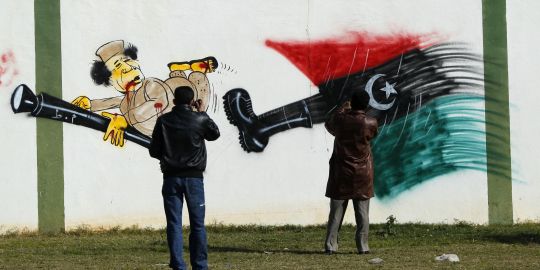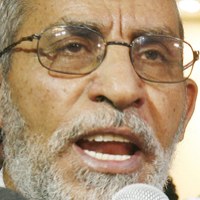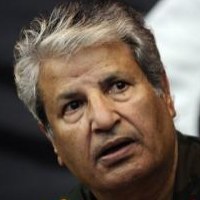![]()
Mon, March 21, 2011 | Turkey Analyst, vol. 4 no. 6 | By Joshua W. Walker

Turkish PM Recep Tayyip Erdogan (L) meeting Libyan leader Muammar Gaddafi (R) on a trip to Tripoli in 2009. (Photo by EPA/BGNES)
Turkey’s Regional Leadership in the Middle East: Principle or Realpolitik?
This article was first published in the Turkey Analyst (www.turkeyanalyst.org), a biweekly publication of the Central Asia-Caucasus Institute & Silk Road Studies Program Joint Center.
In stark contrast to its support for the protest movements in Egypt and Tunisia, Turkey has abstained from taking a principled, democratic stand in the case of Libya. Turkey has opposed the imposition of sanctions and military measures against the Libyan regime. The failure of the Turkish government to live up to the democratic ideals that purportedly guide its policy toward the Middle East reveals the limits of a foreign policy which seeks to balance ideals and “realism”. Ultimately, the effect of Turkey on regional dynamics will only be as strong as its ideals and principles.
Background
“Enough we say, the decision belongs to the people of the brotherly Egyptian and Tunisian nations…Turkey shares the grief of these nations as well as their hopes”, declared Turkish Prime Minister Recep Tayyip Erdoğan in a prime-time speech in which he was the first world leader to explicitly call for Egyptian president Hosni Mubarak to “step down” and “take steps that will satisfy his people.” Erdoğan and Turkey won wide praise throughout the Arab world and beyond for clearly articulating principles that Turkey, as an indigenous democracy, had the credibility and “soft power” to speak about in a way Iran and others lacked. Yet Turkey has failed to muster the same passion for democratization in the case of Libya. In striking contrast to its support for the protest movement in Egypt, Turkey has conspicuously abstained from publicly condemning Colonel Qaddafi’s brutality towards his own people, and has been opposed to the imposition of sanctions and to military measures.
Turkish foreign policy under the Justice and development party (AKP) has come to articulate a vision for improving relations with all its neighbors, particularly by privileging its former Ottoman space in the Middle East, where agreements are being negotiated for a free-trade zone and an eventual Middle Eastern Union. The growing economic and political engagement of Turkey with the Middle East has already led to a significant realignment in the region.
With the fastest growing and largest economy in the Middle East, Turkey is uniquely placed to play a decisive role in providing alternatives models for the newly emerging governments of the region. As a longtime ally of the West and new partner of Iran and Syria, Turkey has been seeking the role of mediator and model. However, Turkey’s aspiration to present itself as a democratic model could be easily undermined by even one miscalculation.
Libya might be just such a miscalculation. Turkey’s muted reaction to the unfolding events in Libya, and notably its opposition to taking action against Colonel Qaddafi’s regime was initially explained with the massive evacuation efforts that were being implemented., and which are by now completed .Turkey has transported the vast majority of its citizens from Libya, in what was the country’s largest evacuation effort of all time. In addition, 20 other nations including the United States requested and received help from the Turkish military that was conducting the operations. However, Turkish diplomacy towards the Libyan crisis ended with the evacuation when it could have played a crucial role as a credible and respected regional power that promotes democracy.
Instead, Prime Minister Erdoğan has expressed opposition in principle to economic sanctions and to military intervention. Turkey has justified its stance by arguing that sanctions will hurt the Libyan people and by claiming that no one in Libya wants military intervention. In fact, contrary to what Turkey has argued, the opposition forces who are fighting against Qaddafi have explicitly asked for international help, including Turkey’s.
Implications
Turkey’s position on Libya is critical because of its potential role as a bridge between Libya and the West. Turkey is sensitive to sanctions given its experience with neighborhood effects in Iraq in the 1990s and Iran today, along with being opposed in principle to Western militarily interference in the region.
Having clearly placed Turkey on the side of the pro-democracy movements throughout the Middle East less than a month ago by proclaiming that, “Turkey is playing a role that can upturn all the stones in the region and that can change the course of history.” Prime Minister Erdoğan shone a spotlight on his government’s pursuit of “foreign policy with character.” The fact that the Turkish Prime Minister was the first world leader to call for Mubarak to step down at a time that other leaders, including President Barack Obama, were hedging their bets showed that Turkey could potentially lead the way in encouraging democracy in other Muslim countries based on its own experiences and lessons. Turkey’s position on Libya risks compromising this potential and appears to be short-sighted.
Turkey’s position on Libya is basically rooted in its large investments in the country and close personal contacts between its leaders. In addition to the well-publicized “human rights” award that Erdoğan received from Qaddafi in December 2010, there are more pressing national economic interests at play. Over the past ten years Turkey has won almost all lucrative construction contracts in Libya and consequently as many as 30,000 Turkish citizens were working and doing business in Libya at the time of the uprisings.
The expanding domestic economic interests and regional dynamism represented by business constituencies that support the ruling AKP has seen, for the first time, new rural Anatolian businesses led by devout Muslims competing with traditional metropolitan businesses in western Turkey. These Anatolian businesses have emerged as strong advocates for further Turkish expansion into emerging Middle Eastern rather than European markets. It would be hard to make sense of Turkish foreign policy towards the Middle East without taking into consideration these new business interest groups. As Turkey becomes more interdependent with the Arab world it will have a higher stake in the stability and prosperity of the region. Hence it is only natural that Turkey will play a more active role in trying to mediate regional tensions; and when it does not, questions will be asked.
Clearly, Turkish leaders were mindful of Turkey’s investments when they formulated Ankara’s stand toward the Libyan uprisings. However, even if Gaddafi prevails and Ankara keeps its contracts, there will be costs in terms of regional prestige and in neighboring countries. Additionally, those who have risen against Gaddafi will most certainly remember who helped them and who did not.
Turkey’s embrace of Iranian President Mahmoud Ahmadinejad’s oppression of the democratic opposition in 2009 and of President Omar Al-Bashir’s regime in Sudan have been inconsistent with the high-minded principles that purportedly guide Turkish foreign policy. Turkey did, however, live up to them in the Egyptian and Tunisian cases, where Turkey appeared to be leading the way in its support for the popular outbreak of democracy across the region. Taking a principled stand is nonetheless never easy and involves costs that perhaps were not initially considered. Yet the Turkish passivity, indeed opposition to taking action against the Libyan dictator vindicates those critics who have long claimed that Turkish foreign policy under AKP is in fact not universally guided by democratic concerns. The ad-hoc nature of Turkey’s policy in reaction to the Arab uprisings is confusing at best.

Turkey's Prime Minister Recep Tayyip Erdogan receives the Gaddafi Prize For Human Rights on the sidelines of the Africa/EU summit in Tripoli November 29, 2010. (REUTERS/Ismail Zitouny)
Conclusions
The AKP has long promoted its foreign policy as being one of idealistic realism which would balance Turkey’s support of democracy and human rights with the geopolitical realities of its neighborhood. And on the whole, the Turks have been embraced by the region because they have been both pragmatic and principled. As seen from the region, Turkey’s strategy of diplomatic and economic engagement has been a welcome one. With its non-sectarian and pragmatic focus, Ankara offers the greatest economic incentives to find a political and sustainable as opposed to violent solutions to the problems of the Middle East
The Libyan case has exposed the limits of this idealistic realism, as idealism has been sacrificed to what has been deemed to be realism. Turkey’s initial silence, and then Erdoğan’s defense of Qaddafi, has called into question Turkey’s sincerity and credibility as a democratic role model in the Middle East. If the behavior of the Iranian government after the 1979 revolution and of the Kuwaiti government after it was liberated from Iraqi occupation in 1991 are any guides as to how a post-Qaddafi government will act in Libya, then neither will “realism” pay off. In both cases the new governments in power politicized their foreign trade and contract awarding procedures. Nations that were perceived to have been friendly during the struggle were rewarded with profitable contracts while those perceived to have been hostile were ignored.
Turkey has substantial business and geopolitical interests to consider in Libya that do dictate caution; however if Ankara assumes that it can pick and choose which dictators to support, it no longer will be presiding over a foreign policy with character, but simply realpolitik. In fact, by not joining the international community, including the Arab League and United Nations that are moving against Colonel Qaddafi, Turkey risks losing not only its hard earned credibility in the region as a champion of democracy but also its access to the Libyan economy regardless of Qaddafi’s immediate future.
Often interests and principles are indeed in conflict, but for Turkey the choices in the Middle East should be quite simple: The leadership role to which Turkey aspires to crucially depends on an ability to live up to those democratic ideals and principles that the Turkish government claims that it promotes. Ultimately, Turkey’s effect on regional dynamics will only be as strong as its ideals and principles.
About the author,
Joshua W. Walker, Ph.D., is a post-doctoral fellow at the Crown Center for Middle Eastern Studies at Brandeis University and is a research fellow at the Harvard Kennedy School.



 RSS
RSS











Turkey’s Regional Leadership in the Middle East: Principle or Realpolitik? | #Turkey #Libya #Erdogan #NATO #Gaddafi http://j.mp/fIkQeS
http://bit.ly/eJ5MFl #Turkey ’s Regional Leadership in the Middle East: Principle or Realpolitik? #AKP #Erdogan #Libya